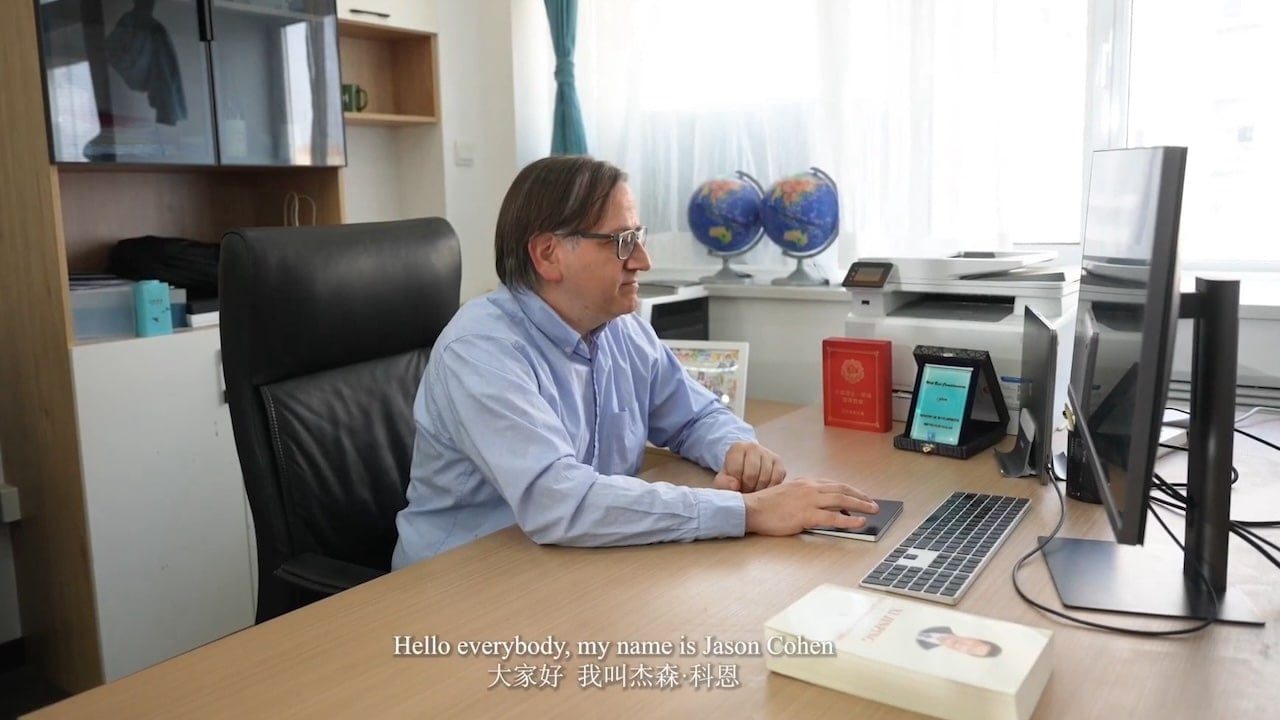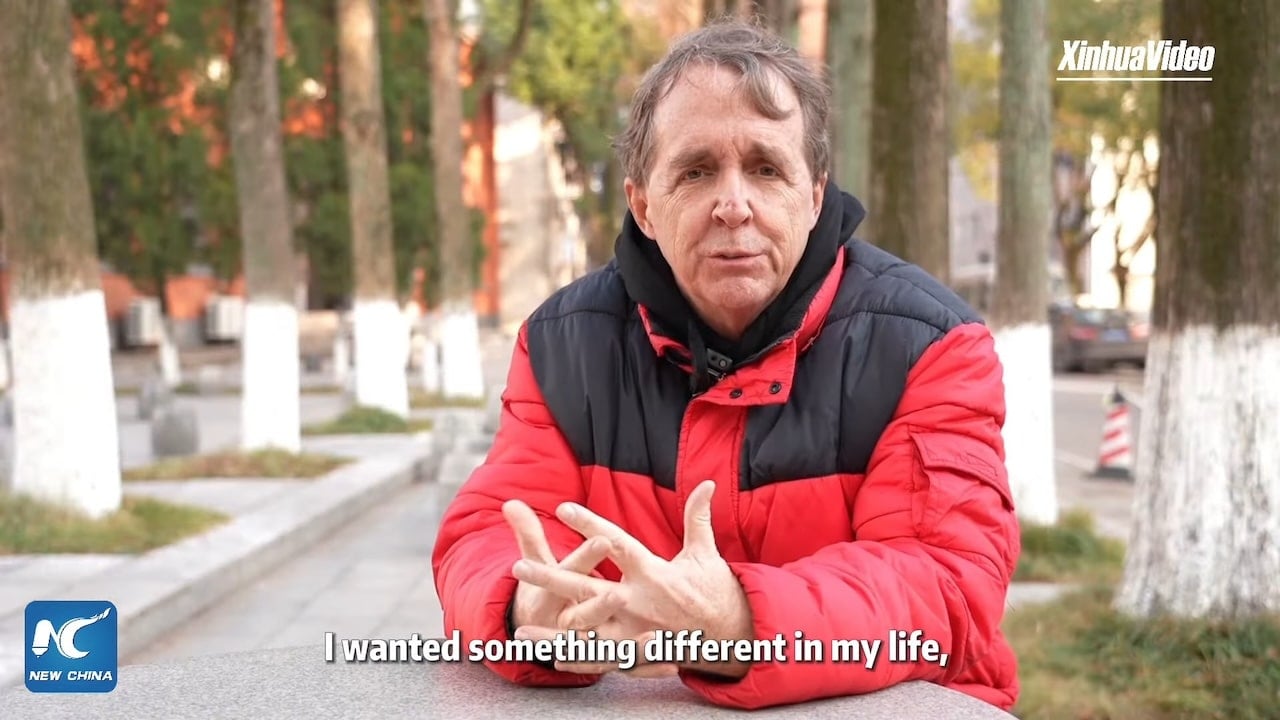 Semester 二 (2)
Semester 二 (2)
The Spring Festival vacation was long, long, long, but here we are at the start of a new semester at last! So I think it’s just the right time to discuss the beginning of the two semesters comparatively.
First semester was a whirlwind. That’s the only way to describe it. It took a whole lot of extra time to get my visa and work permit, so my arrival at Nanchang University was quite delayed (about 3-4 weeks into the semester). We showed up here on a Saturday and began teaching two days later with very little information and not nearly enough preparation. I had some general lesson plans drafted up ahead of time, but I honestly didn’t know what to expect from my students nor did I know what courses I would be teaching until that first day in Nanchang. The first week of classes was crucial, not only for getting to know my students and my way around campus, but also for assessing the level of oral English that I needed to gauge my lessons toward for the year.
The truth is, the students in my classes have a range of oral English levels, which means that sometimes my classes are too challenging for some, while other times my classes are too easy for others. It’s been a real challenge for me to find and establish that middle ground – I’m still not entirely convinced that I have found it. On the plus side, this semester I know my students. I know their different personalities, and those more likely to speak up in class. I know that they like competitive activities, and I know that humor at my own expense is always appreciated. (I’m very willing to embarrass myself for the greater good!) Having that information in advance makes a huge difference between this semester and last.
In truth I was quite nervous to walk into my first day of classes today, mostly because I worried that I would forget my students names after working so hard to memorise all of them last semester. But I got in there and it felt like the most natural thing in the world. I saw all these wonderful, familiar faces filled with an eagerness to learn. It was an exciting day for everyone, in my opinion, because the classroom was full of chatter and movement and learning!
My advice to future teachers in China: Plan for anything. Plan for everything. Just think of your best ideas for activities, lessons, lectures, discussions, and all that jazz – and write them all down! That way once you assess your students you will be able to take those ideas and adjust them to the level(s) of your students without feeling like you are in complete disarray. And if you don’t know the specific courses you’ll be teaching ahead of time (like me!) prepare for it all! Reading, writing, oral english, public speaking, cultures of English speaking countries, debate, etc. You won’t always get information far in advance, so it’s important to be willing and able to adapt!

(Busy in the city… 南昌 … Nanchang …)

(Yummy dinner in Nanchang 南昌!)

(The lake on campus – 没有人 … no one … )
 A Family Visit
A Family Visit
Sometimes I forget that I haven’t lived in China my whole life. I know this sounds silly because, of course, I’ve only been in China since October, but having my grandparents and their two friends in Nanchang for a few days threw into sharp relief just how much I have assimilated to life here in that short time.

For instance, I did not even consider that my visitors would be unable to use chopsticks effectively. Nor did I realize that I had become accustomed to the stark language barrier. People in China don’t speak English. They speak Chinese – they all learn Mandarin, but usually they speak the dialect of their own province or city. My students speak English because they are English and translation majors currently attending college. Occasionally there is a hotel manager with English skills, or a cashier at a Western brand store that can use a little English to help you, but mostly people speak Chinese and you have to do your best to communicate when you want or need something. For me, that means learning key words and phrases during my time here, but for my grandparents it meant using body language and hoping for the best (and then relying on me and my poor Chinese skills to translate… yeah, good luck with that).
Considering the rainy weather, the language barrier, and the sudden realization that I would be subjected to a multitude of questions that I didn’t have the answer to, we had quite a good time! We visited Tengwang Pavilion across the river, which I had not previously been to. It is one of the famous sites of Nanchang, and it’s large and beautiful! The only fun fact I knew before visiting is that the structure has been rebuilt several times, so I was able to learn a lot more that day. The site of Tengwang Pavilion includes the pavilion itself filled with artifacts and information, the gardens surrounding the many structures, and a superb view of the river (on a sunnier day). We also visited the Bayi Memorial museum during the weekend, which memorializes the Nanchang Uprising led by the Chinese Communist Party on August 1, 1927. I have now been there three times, but this time I had my trusty colleague present to provide additional information, and four extra Americans to offer their comments. I learn something new every time I go, so I expect to visit at least once more before I leave this city!

In addition to learning a bit of Chinese history during our adventures, my grandparents learned more about Chinese people, especially those who live in a smaller (hah!) city like this one and who rarely see foreigners… they want lots of pictures! For the most part I’ve gotten used to strangers approaching me on the street asking for a selfie, but it was a new experience for my four companions. It was kind of nice to deflect the attention to other people for once. When they visited my classrooms the students attempted to be a bit more discreet, but there were still a handful that approached for photos at the end of class.
It was a great opportunity for my students and my four American companions to be able to meet each other. The students listened to four voices that differ from my own, and benefitted from it in many ways. Not only did they listen to these voices, but they asked questions about daily life in America and my grandparents’ hobbies. In return, my grandparents asked a few questions of their own about the students’ daily lives and activities here in China. We were able to generate some good discussions, and I was very proud of my students who spoke confidently and clearly in a new situation. We’re all hoping that my grandparents and their friends are enjoying the rest of their travels through China. Meanwhile, the students are improving daily!
 Chinese Food
Chinese Food
It can be very difficult to get accustomed to whole new daily cuisine, but during my time in China this difficulty has been made easier by one simple fact: the food here is delicious! I still miss some things that are rarely found here, such as a hearty steak, but I know that when I return home there are many foods that I will have to say goodbye to. So today I’d like to dedicate a post to some food photos, so that everyone else can see the delicious-ness that we experience here every day. (And FYI, it’s not at all like the “American Chinese” food that we have at home… though I do like both very much!)
Yummy Chinese BBQ! Recently this has made many appearances in my life because of the warm weather. We sit outside, eat some barbecue, drink some beer, and enjoy good company. There are vegetables, meats, and usually an assortment of seafoods as well… snails and crawfish are some favorites.

麻辣烫 (Pronounced “malatang” and roughly translated to “hot spicy soup”…) Essentially you can choose meats, vegetables, bread, etc. and the restaurant will cook them in a hot, spicy broth for you. You can choose your level of spiciness depending on your personal tastes, hence the rough translation. If you know a little Chinese you don’t have to worry about too much spice!

These are clams cooked with Chinese style sauces and spices. We’ve encountered many seafoods here that are the same as those back home, but completely different in taste! The style of cooking here is quite different, and therefore it is very enjoyable to try new things. Though Nanchang is not close to the coast, it still gets quite a bit of fresh seafood from the coastal cities of the south.

火锅 (Pronounced “huoguo” this is the name for Chinese “hot pot”.) I’ve been told that Sichuan Province is famous for this dish, but my experiences with it in Nanchang have been quite good too. The menus can sometimes be difficult for me to read, so I like this restaurant in particular where you can choose your food from sight rather than a Chinese menu. On the right sight is a bland broth, and on the left side is a spicy broth. You can put your food in either side to cook and then enjoy!

The last thing I want to mention is Chinese tea. I am not usually a tea lover, but I have had the opportunity to try many different teas during my time here (and in Fuzhou as well) and I’ve really liked them! This particular tea is from a gathering of people who taste and enjoy tea weekly. Experiencing this tea along with Chinese singing, dancing, and entertainment was an experience I will not soon forget!
There are many other delicious foods that I could talk about, and I wish I could share them all with you the way that my students share them with me, but instead I recommend taking off to China to experience these exquisite tastes yourself. My students and I all agree that translating the names of foods can be the most difficult because they don’t always translate quite right. You may need a translator to accompany you on a food journey through China, but it’s certainly worth it! Yum, yum, yum!
 Time to Fly
Time to Fly
It’s almost time for me to pack up and head home, so with that in mind I’ve reflected on my packing from the beginning of the year and I have a few recommendations for future teachers! Next week I will write my final blog post about this year in China, but for now, consider these hints, tips, and suggestions about packing.
- TISSUES – of course you can buy these anywhere once you arrive, but it’s smart to have at least one pack in your purse or bag because you’ll use them everywhere you go… restrooms, restaurants, even to wipe your sweat in the summer heat.
- A solid pair of walking shoes – without a car you’ll be walking a lot and it can be difficult to find the right size, especially if your size lies outside the average.
- An umbrella, especially in Nanchang… I cannot emphasize this enough! I have bought and broken three umbrellas during my time here: bring a strong one!
- Clothes that you like – don’t be worried about standing out (as a foreigner in China you will stand out no matter what you do)! Multiple pairs of pants, a balance of work and leisure clothes… A multi-seasonal jacket is also highly recommended. Always a good idea when you’re traveling – it’s quite cold in the winter and quite hot in the summer. Be prepared for all kinds of weather and a range of temperatures.
- Smartphone. It seems like everyone these days has a smartphone, but if you don’t – invest! APPs like WeChat are your connection to everything in China – messaging, paying, and several other things are done using a smartphone. It’s much more convenient to have one!
- Headphones – first of all, they’re useful for the long-as-can-be plane ride… additionally they’re good for walking around campus or the city, getting work done at a cafe, etc. (I’m using mine right now.)
- Medications. Obviously you should bring any prescription medication with you, but even basic products like ibuprofen, allergy medicine, and cold medicine are good to have with you. Brands here are different, and if you’re not familiar with them or the Chinese characters it can be frustrating to find what you need. If there’s something that you prefer a particular brand for (deodorant, contact solution, etc.) bring it!
- Solid backpack. Definitely. Even as a teacher you will use it every day. You can not only carry your class materials more easily, but you can also use it to carry things from the grocery store, to hold your umbrella, and to more conveniently go about your daily life.
- Something to make you feel at home – a stuffed animal, a book, whatever you prefer! It’s a big adjustment, so you might need something that reminds you of home every once in awhile.
- A willingness to learn and adapt. Join in cultural activities, learn about Chinese festivals, make an attempt to learn the language if you haven’t already – China has so much to offer, especially to someone completely unfamiliar with this country! I came here with very limited knowledge about what I was getting myself into, and I’m coming out the other side with so much more than I ever could have imagined!
People here are so friendly and willing to help when you need something, but it’s important to meet them halfway. Pack thoughtfully and consider that a move to China is a big change (especially coming from a western country). I highly recommend this experience and implore you to pack your best attitude if you plan to teach here in the future!
 Final Thoughts – 再见中国
Final Thoughts – 再见中国
With the final week being as busy as it was I’m not surprised that I didn’t find the time to write before I left. The last several days I spent in Nanchang were full of activities, friends, laughter, and a slight pang of regret about leaving.
The students I taught and the friends I made are what made this experience so special and valuable. I spent the past 9 months teaching – I threw a lot of information at my students and they took it in stride. I became friends with many of them – this may sound strange, but in China it’s really not – and they had plenty to teach me as well.
My Chinese is mediocre at best, but I’ve been encouraged to continue learning (if only to impress my students and friends in the future). All of the hardworking and friendly people I met this year were a major inspiration for me. I would consider myself generally hardworking and friendly to begin with, but the positivity of this experience pushed me to be more than that.
I still don’t know what the next chapter of my life will entail, but a few things are clear…
I will keep in touch with all of these wonderful people as much as possible.
I will devote myself to studying Chinese at least to a moderate proficiency.
I will try to harness my positive traits and magnify them, while limiting any negativity.
And last, but certainly not least, I WILL return to China in the future!
 Introduction to Nanchang University
Introduction to Nanchang University



